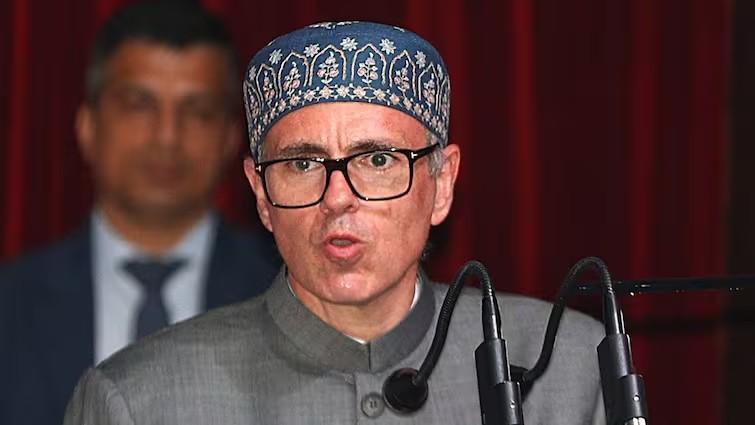
Normalcy in J&K post Art 370 abrogation is forced, not organic: CM
The abrogation of Article 370 from Jammu and Kashmir (J&K) on August 5, 2019, was a landmark decision that has had far-reaching consequences for the region. The decision, taken by the Indian government, aimed to integrate J&K with the rest of the country and bring about a new era of development and growth. However, the road to achieving this has not been smooth, and the process has been marred by controversy and uncertainty.
Recently, J&K Chief Minister Omar Abdullah expressed his concerns about the normalcy in the region, stating that it is “forced” and not “organic”. This comment has sparked a heated debate, with many questioning the validity of Abdullah’s claims.
In an interview, Abdullah pointed out that the normalcy in J&K was not a natural or spontaneous development, but rather a result of external pressures and interventions. He said, “If what is happening in J&K is organic, then nothing like it. If it is driven out of fear, then there’s a problem.” He also added, “But I’ll hazard that people don’t believe it is organic.”
Abdullah’s comments have been met with criticism from the Centre, which has maintained that the normalcy in J&K is a result of the efforts of the government to bring about peace and stability to the region. The government has pointed out that the region has witnessed a significant decline in violence and terrorist activities since the abrogation of Article 370, and that the people of J&K are now free to move about and participate in the democratic process without fear of violence or intimidation.
However, Abdullah’s concerns are not without merit. Many observers have noted that the normalcy in J&K is fragile and precarious, and that the region is still grappling with the aftermath of the abrogation of Article 370. The government’s decision to scrap the special status of J&K and bifurcate the state into two union territories has led to widespread protests and unrest, and many people are still struggling to come to terms with the new reality.
Moreover, the government’s efforts to bring about normalcy in J&K have been criticized for being heavy-handed and repressive. The government has imposed strict restrictions on the movement of people and goods, and has also detained many people, including political leaders and activists, under the Public Safety Act (PSA). These measures have been widely condemned as a violation of human rights and a threat to democracy.
In addition, the government’s claims about the normalcy in J&K have been disputed by many independent observers and human rights groups. They have pointed out that the region is still plagued by widespread human rights violations, including the use of pellet guns, arbitrary arrests, and enforced disappearances. They have also highlighted the fact that the government’s efforts to bring about normalcy have been accompanied by a significant increase in military presence and surveillance in the region.
In conclusion, while the government may claim that the normalcy in J&K is organic and a result of its efforts to bring about peace and stability, the reality is that it is a fragile and precarious phenomenon that is driven by external pressures and interventions. The comments of J&K Chief Minister Omar Abdullah highlight the need for a more nuanced and balanced approach to addressing the complex issues facing the region.
It is clear that the normalcy in J&K is not a natural or spontaneous development, but rather a result of the efforts of the government to bring about peace and stability to the region. While the government’s efforts to bring about normalcy are welcome, they must be accompanied by a greater respect for human rights and the democratic process.
Sources:






